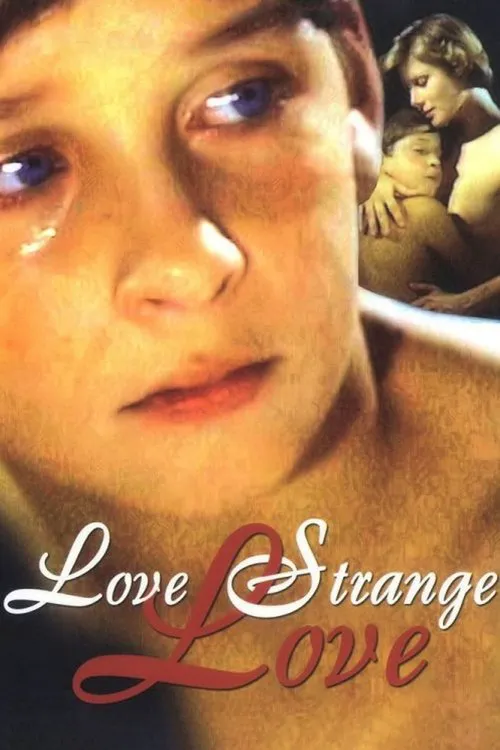Love Strange Love

Plot
In "Love Strange Love," the 1980 Brazilian film directed by Arnaldo Jabor, the protagonist, also referred to as "the boy," embarks on a poignant journey of self-discovery through his memories of a pivotal moment in his life. As a young child, the boy spends forty-eight crucial hours with his mother in a brothel owned by the influential politician, President Getúlio Vargas, in Rio de Janeiro, Brazil. It is 1937, and Brazil is on the brink of significant changes that would alter its social landscape and the lives of its citizens. Upon arrival, the boy's mother, who is one of Vargas's favorite women, sets out to shield him from the harsh realities of the world outside the brothel. She attempts to maintain an illusion of a normal family life, but the boy's curiosity and observation skills soon lead him to unravel the complexities of their unusual living situation. The brothel, a place of both refuge and confinement, serves as the backdrop for the boy's introduction to the intricacies of his mother's relationships with the various men who reside there, including the politician. As the boy navigates his surroundings, he begins to grasp the nuances of his mother's interactions with the men, including Vargas, and the nature of their relationships, which are rooted in a mix of affection, power dynamics, and manipulation. This exposure leads the boy to question the societal norms and expectations placed upon him and others like him. Through his observations, he becomes increasingly aware of the contradictions between the idealized family life his mother attempts to create and the harsh realities of their circumstances. The brothel itself is a character in the narrative, embodying a labyrinthine world where the boundaries between love, lust, and exploitation are constantly blurred. The various inhabitants, including the courtesans, who come from diverse backgrounds and walks of life, each have their own stories, desires, and motivations. The brothel serves as a microcosm of the larger society, where power dynamics, class distinctions, and social hierarchies are evident. As the boy delves deeper into his surroundings, he begins to develop his own understanding of human relationships and love. He witnesses the various forms of love and affection within the brothel, some of which are genuine, while others are transactional or exploitative. Through his observations, the boy starts to grasp the complexities of human emotions and the multifaceted nature of love. This burgeoning understanding is pivotal in shaping his perception of himself, his relationships with others, and his place within the society. One of the most pivotal relationships in the narrative is between the boy and his mother. Their bond is a testament to the enduring power of love and connection, even in the most challenging circumstances. As the boy grapples with his own identity and understanding of love, his relationship with his mother serves as a source of comfort, guidance, and support. Their interactions are marked by a deep-seated love and loyalty, which provide a sense of continuity and normalcy amidst the turmoil and upheaval surrounding them. However, the boy's observations and newfound understanding of the world also lead him to confront the darker aspects of their situation. He witnesses the ways in which his mother is objectified and used by the men in the brothel, and the ways in which her relationships with them are tainted by power dynamics and exploitation. This exposure has a profound impact on the boy, forcing him to confront the harsh realities of his mother's situation and the world around him. The film's portrayal of the brothel and its inhabitants is a scathing critique of the social norms and power structures of 1930s Brazil. The narrative highlights the ways in which the wealthy and powerful elite exploit the vulnerable and marginalized, often through coercion, manipulation, or exploitation. The brothel itself is a symbol of the corruption and hypocrisy that pervade the society, where the lines between love, power, and exploitation are constantly blurred. In "Love Strange Love," the boy's journey of self-discovery is intricately tied to his observations of the world around him. As he navigates the complexities of his mother's relationships and the brothel's inhabitants, he begins to develop a nuanced understanding of love, human relationships, and the harsh realities of the world. The film's narrative is a powerful exploration of the human experience, delving into themes of love, power, and identity in the face of societal expectations and norms. Through its poignant portrayal of the boy's journey, "Love Strange Love" offers a thought-provoking critique of the social hierarchies and power structures that shape human relationships and experiences.
Reviews
Recommendations




